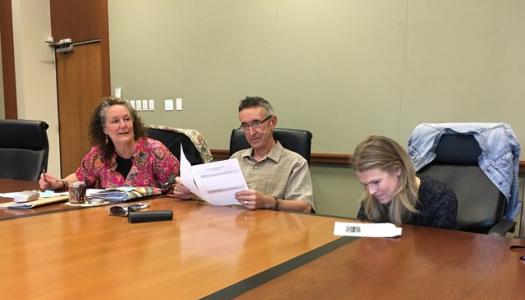Living within planetary boundaries

On March 2, 2020, 15 Royal Roads University graduate students and 5 faculty convened in the Centre for Dialogue to respond to the Canadian Association for Graduate Studies (CAGS) call to share ideas and insights into how to live within the earth’s carrying capacity, convened by the School. Two roundtable discussions, one virtual, and the other place-based had a wide-ranging dialogue focussed on the need to include social systems, poverty, human and Indigenous rights and the economic system in any discussion about living within the earth’s carrying capacity. The group identified several critical research gaps and questions, including the need for a systems approach and to change development paths; the importance of incorporating different knowledge systems; issues of power imbalances and justice; and questioning the prevailing ethos of economic growth. Current challenges of climate change and biodiversity loss and threats to food systems have profound implications for the human condition and urgently require leadership, widespread action and cultural change if we are to begin to live within the earth’s carrying capacity.
Given the complex challenges and imperatives outlined by the group, it is clear that the issues are beyond any one discipline, any one sector, any one government to solve, necessitating inter- and trans-disciplinary research. It is clear that systems perspectives and more holistic research approaches should be adopted. Participants stressed the need for transdisciplinary research that incorporates different actors and knowledge systems and works with communities and stakeholders to solve urgent societal problems. Specific recommendations that emerged from the discussion, identifying challenges of living within the earth’s carrying capacity, strategies and research gaps for meeting those challenges, are being compiled into a report that will be sent to CAGS and the Social Sciences and Humanities Research Council.